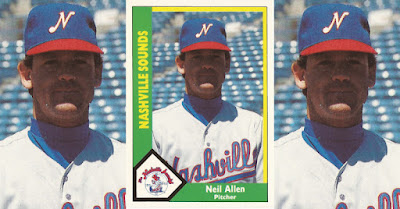Posts
Showing posts from May, 2012
Jackson Todd returned from cancer to bigs, long coaching career
- Get link
- X
- Other Apps
Chris Knabenshue made 10 seasons, AAA: Baseball Profiles
- Get link
- X
- Other Apps
Jim Beauchamp knew hard work made bigs, as player, coach
- Get link
- X
- Other Apps
Terry Wells saw nine pro seasons, made 5 majors starts
- Get link
- X
- Other Apps
Wes Chamberlain had fun, worked hard over 6 ML seasons
- Get link
- X
- Other Apps
Neil Allen found majors success as closer, later as starter
- Get link
- X
- Other Apps
Dave Hansen locked in with Dodgers, others in 15 seasons
- Get link
- X
- Other Apps










